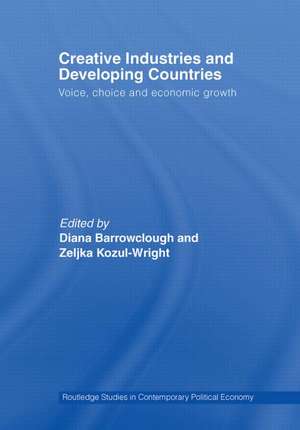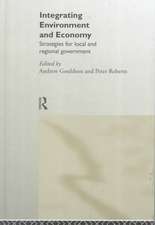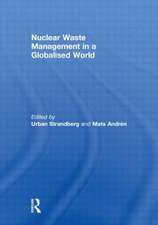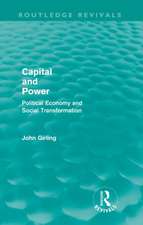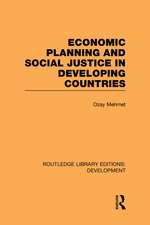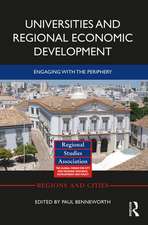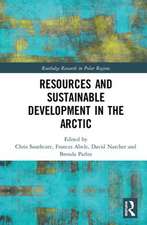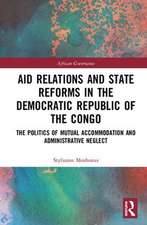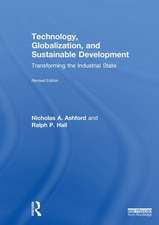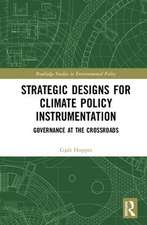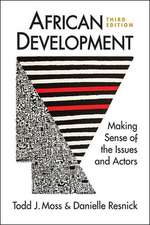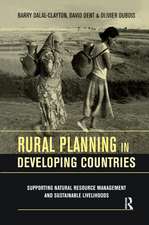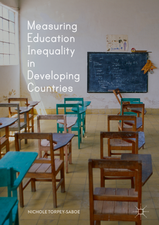Creative Industries and Developing Countries: Voice, Choice and Economic Growth: Routledge Studies in Contemporary Political Economy
Editat de Diana Barrowclough, Zeljka Kozul-Wrighten Limba Engleză Paperback – 16 noi 2011
Mixing theory, country case-studies and policy analysis this volume argues that developing countries can use their creative assets and energies as a source of economic growth - if they can better position themselves in the global economy, turning on its head the polarized debate about commerce and culture to take a fresh look at some traditional activities whose intrinsic cultural value has for too long hidden their economic worth.
It includes essays from economists, lawyers and industry experts on global trade trends; digital-technology; film in West Africa; audio visuals in India; the music industry in Brazil and the Caribbean; the copyright industry in Arab countries, and policy lessons from developed countries - including sources of finance, subsidies and the role of incubators and intermediaries.
Fresh and incisive, this policy lead book on one of the world’s fastest growing sectors is an invaluable resource for to economists and policy-makers alike, as well as those with an interest in industrial organization, development policy, evolutionary economics and the creative industries.
| Toate formatele și edițiile | Preț | Express |
|---|---|---|
| Paperback (1) | 424.58 lei 6-8 săpt. | |
| Taylor & Francis – 16 noi 2011 | 424.58 lei 6-8 săpt. | |
| Hardback (1) | 1176.05 lei 6-8 săpt. | |
| Taylor & Francis – 17 sep 2007 | 1176.05 lei 6-8 săpt. |
Preț: 424.58 lei
Nou
Puncte Express: 637
Preț estimativ în valută:
81.24€ • 85.05$ • 67.22£
81.24€ • 85.05$ • 67.22£
Carte tipărită la comandă
Livrare economică 05-19 aprilie
Preluare comenzi: 021 569.72.76
Specificații
ISBN-13: 9780415512466
ISBN-10: 0415512468
Pagini: 352
Ilustrații: 15 Line drawings, black and white; 30 Tables, black and white; 15 Illustrations, black and white
Dimensiuni: 156 x 234 x 19 mm
Greutate: 0.65 kg
Ediția:1
Editura: Taylor & Francis
Colecția Routledge
Seria Routledge Studies in Contemporary Political Economy
Locul publicării:Oxford, United Kingdom
ISBN-10: 0415512468
Pagini: 352
Ilustrații: 15 Line drawings, black and white; 30 Tables, black and white; 15 Illustrations, black and white
Dimensiuni: 156 x 234 x 19 mm
Greutate: 0.65 kg
Ediția:1
Editura: Taylor & Francis
Colecția Routledge
Seria Routledge Studies in Contemporary Political Economy
Locul publicării:Oxford, United Kingdom
Public țintă
PostgraduateCuprins
Section 1: Voice, Choice and Growth 1. Voice, Choice and Growth through Creative Industries: Towards a New Development Agenda Section 2: Prospects and Perils 2. Opportunities Presented and Threats Posed by the Digital Production/Distribution Revolution 3. Financing Creative Industries in Developing Country Contexts 4. Film Culture and Industry in Burkina Faso 5. The Music Industry and its Potential Role in Local Economic Development: The Case of Senegal 6. The Sounds of Brazil: The Popular Music and the Music Industry 7. The Audio-Visual Sector in India 8. Copyright-Based Industries in Arab Countries 9. The IPRs and the Music Industry in the Caribbean Section 3: Policy Responses 10. Promoting Creative Industries: Public Policies in Support of Film, Music and Broadcasting 11. Targeting Creativity through the Intermediary: Regional and Local Approaches in the UK and Beyond 12. The Policy Parameters
Recenzii
". . . the book provides important information . . . is undeniably an invaluable resource. I heartily recommend it to all: cultural professionals, economists and policy makers, as well as those interested in industrial organization, development policy, evolutionary economics and the creative industries."
– Komlan Agbo, in Journal of Cultural Economics, 2009, Vol. 33
– Komlan Agbo, in Journal of Cultural Economics, 2009, Vol. 33
Descriere
Pushing the frontiers of the new development paradigm, this book guides debates, clarifies new themes and illustrates how the cultural resources of the developing world can become a new way of integrating into the global economy
